#it’s just sleeping❤️
Note
Hi mairon! I love the self insert comfort you did it was so cute! Would you be able to make some more? Possibly diluc taking care of someone like the girl you did in the last one — maybe putting them to bed because I’m suffering w my insomnia right now 😅 if you can’t dw!

oh, to be tucked snugly into bed by Diluc Ragnvindr
#insomnia is the worst i’m so sorry anon#and it’s like the most frustrating thing in the world#there is a part in my menstrual cycle where i just cannot sleep 🗿 i feel actually insane whenever it comes around#i hope you are sleeping better now! please take care 🥺❤️#i’m such a sucker for hurt comfort man#diluc is walking around the bed and getting snuggled into his side after this#before my dad passed away he would tuck me in bed every night#yes even when i was 17#he would grab my blankets just like diluc is and use his weight to push me into my comforter lol#and then ask if i’m snug as a bug yet hdhhf#hurt/comfort#diluc x reader#diluc x yn#diluc#my art#asks#genshin impact#anon#tagging this as awealuc#because it is#atp#awealuc#genshin#diluc ragnvindr#diluc fanart
875 notes
·
View notes
Text
Relationships are so insane like what do you mean you just have someone you get to talk to all the time?? Who cares about you?? Who you also care about?? And you just get to show that to each other?? Like wtf is that even allowed???? How do i get it to happen to me????
#wlw#wlw mood#sapphic#sapphism#lesbian#i am ~~~Lonely😌❤️🌸🌹~~~#relationships are just wild concepts#like wtf#honestly#im gay and i like sleeping
421 notes
·
View notes
Text
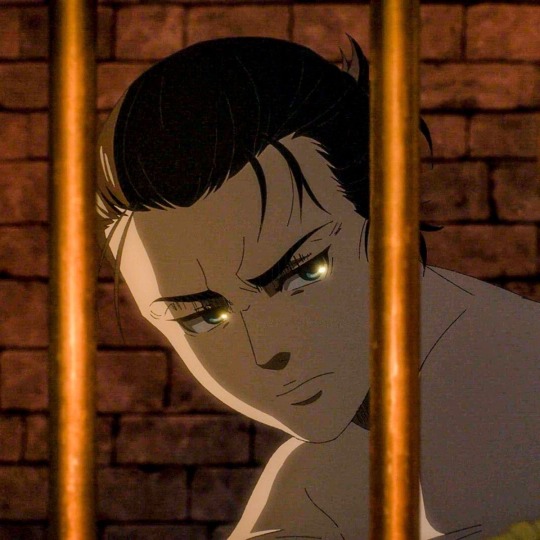


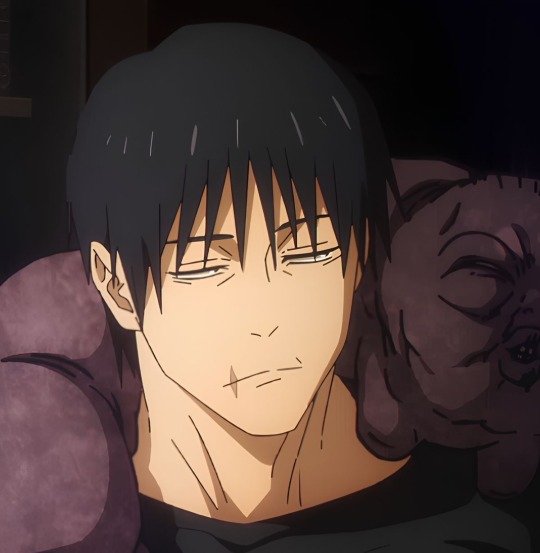
tell him you know a place then drop him off at a therapist
#baby it’s okay we’re just going out for ice cream❤️i know a location#no no the voices in your head are normal! let’s just take a detour real quick i forgot something#oh this? this is the direction towards the mental ward? nice obversing skills baby i’m proud of you#i would never gaslight you why are you imagining things. what’s REALLY going on?#dw abt it my sweet sugerplum honey comb#the voices!!!#i’m sleep deprived again kay gn#Eren#Reiner#geto suguru#toji fushiguro#Aot#jjk#images
292 notes
·
View notes
Note
At the tail end of a long, grueling mission that had them run around half of Eastern Europe, Laswell had given Ghost and Soap three days of leave before they'd be flying back home. She'd even booked them a hotel in a tiny spa town for two nights. Yet even though they arrived early in the day, Soap was still exhausted enough from the mission to just let Ghost handle the check in.
Something was off, though, when Ghost returned to him. He could tell by the square set of his shoulders and the slight frown on his brows. Even without his usual balaclava, his hood and face mask hid most of Ghost's expressions from inexperienced viewers.
"Good news: Laswell's paying for two dinners each at the in house restaurant. It's supposedly very good," Ghost reported.
"And the bad news?"
Ghost subtly shifted his weight. "Only had rooms with double beds left."
"You mind sharing?" Soap raised his eyebrows.
"Nah. Thought you might."
"Nah. Let's get up to our room then. I'm right knackered from the trip."
Ghost rolled his eyes at the phrasing, but didn't comment on it. When Soap punched his shoulder to signal go time, he obediently followed to the elevator.
As forewarned, the room only had one bed. But at least it was the softest, most cloud like bed Soap'd ever had the pleasure of sitting on. He wanted to immediately lie down and never get up. First things first, though.
"Mind if I take the first shower?"
Ghost shrugged. "Feel free. Thought I'd have a look around town. Find the spa. Try the public fountains. Look at the local attractions. Tourist shite."
"Have fun. I'll cover home base while you're out on recon, then."
Ghost huffed out a small laugh as he turned to leave the room.
Soap hopped into the shower for a quick wash, dried himself off with extremely fluffy towels and then got himself comfortable in the bed. He'd planned on a quick nap, but when he woke up again, it was because someone had chucked a paper bag at his head. It smelled deliciously like baked goods.
"Got you lunch, Sleeping Beauty."
"I'd be so mad at you for waking me like that," Soap said as he sat up and bit into the bun that'd smacked him in the ear. "If this weren't so good."
"Up for an afternoon trying all the healing springs? The park is twenty minutes from here and has at least ten different fountains with different properties. Maybe one can cure stupid."
"Maybe one can cure being a dick."
"You'll never know."
They spent the afternoon together trying the water from every single fountain in the park. It had clearly been built sometime in the nineteenth century, Soap pointed out, citing the architecture and decorations. The water was various kinds of salty. More than half the fountains were claimed to have uranium in the water, a fact that led both Ghost and Soap to come up with more and more outrageous movie mutations caused by too much of the spa water. Dinner at the hotel's restaurant was fantastic. The chef didn't skimp on the fat, nor on the herbs and spices.
Soap had almost forgotten about the bed in their room by the time they got ready for bed. "I can still sleep on the floor, LT."
"Why?"
"Dunno." Soap shrugged. "Thought it might be weird to you."
"'s not." Ghost took off his boots, stripped down to his undershirt and briefs before he slipped under the covers. "Fuck. 's like a cloud in here."
Quickly, before either of them could change their mine, Soap undressed and got into bed as well. His hammering heart forced him to keep a fair distance between himself and Ghost.
"Figured you'd be a cuddler," Ghost mused.
"That an offer?"
"Mh." Under the covers, Ghost reached out to pull Soap closer to him. "Don't mind if it's you."
Soap swallowed. He let himself be pulled against Ghost, head resting on a broad chest, hand over a heart that was beating it's staccato rhythm in tandem with Soap's own.
"G'night, Simon," Soap whispered, not trusting his mouth to say more.
"Night, Johnny."
When he woke up the next morning with his Johnny sprawled out on top of him, with his breath hot against his bare neck, Ghost was immensely glad he'd convinced the hotel clerk to give them a room with a double bed. Even if it was just for one more night, he'd treasure this closeness for the rest of his life.
This felt like getting tucked into a comfy warm hotel bed of my very own <3 I hope everyone else enjoys this cloud bed as much as I do god BLESS
#ghostsoap#I love their banter especially ghost’s one liners my god#“maybe one can cure stupid” AKDHSHA PLEASE#cuddling ghoap my absolute beloved#ghost you sly devil you#thank you for this treasure I’m sorry it took so long to answer I was waiting until I had good quiet time to read it <333#LITERALLY the post from the other day about writing characters just getting to sleep in a comfy bed oh my god 😭❤️🫶#fics#asks#long post
77 notes
·
View notes
Text
Idk about you guys but I headcannon Mr. Stick will sometimes pull on Burton’s bow tie (like when he needs to speak with him or something) like this:

And he unintentionally causes Burton to panic. Gay panic. Bro’s trying so hard give him a break-
#Pizza Tower#Personally see Stick is that style of character to just pull Burton’s tie at random to speak to him privetly#You ever see that in cartoons? mainly when the villain does it to his henchman#Yeah that’s what I’m going for-#Anyways I need to go to bed or else I’ll be sleeping at school skabaiekxispwje bye ❤️❤️#Mr. Stick x Burton#because yes these men are old and gay#Mr. Stick#Burton
81 notes
·
View notes
Text
lancer woke him up at 3am

#was this just an excuse to draw rouxls in (kinda) normal clothes? maaaayyybeee#being fr he'd sleep in the scrooge fit#but also#the mental image of him wearing spade-adorned shorts was very funny to me#his shirt says 'worme ❤️' btw#deltarune#deltarune chapter one#deltarune fanart#rouxls kaard#deltarune rouxls#rouxls fanart
104 notes
·
View notes
Photo
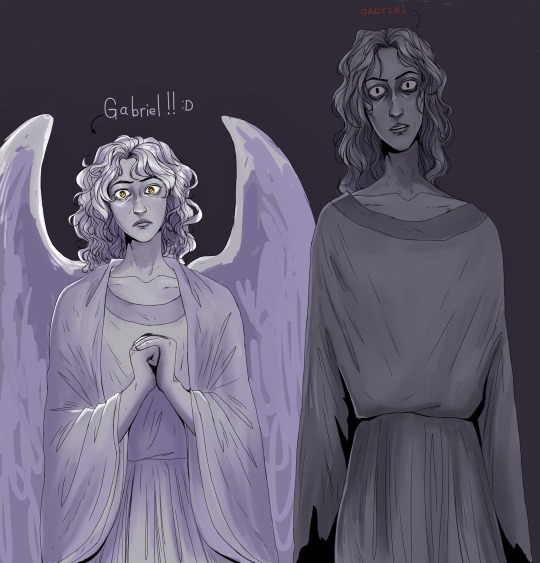

me figuring out how I’ll draw them + a silly doodle
#the mandela catalogue fanart#the mandela catalogue#mandela catalogue#analogue horror#scopophobia#LMAO i like how one of them is like the creator of the alternates and made me lose sleep#and then the other one is just. silly#tmc gabriel#sus gabriel#toonbriel#timmy draws stuff#doodles#also to everyone who did give suggestions I will do them soon I just needed to get this out of my system ❤️#wine uncle “gabriel”……….. soon
1K notes
·
View notes
Note
you know how otters hold hands when they sleep so they don't drift apart? what if neuvi 🥺🥺 what if he 🥺🥺🥺🥺
I CANT DO THIS OH MY GOD😭😭🥺💖 Hand-holding... arm linking... one of Neuvillette's favorite things tbh 🤭
The funny thing is, I think he probably treats handholding as some kind of borderline-sacred act that happens deep into the relationship. If reader is the bolder type and just randomly grabs his hands out of nowhere he'll just short-circuit inside for a bit and blank out what you're saying to him. Because holy- your fingers are intertwined with his but he has BARELY begun the courting stage... yet you're having so much skin-to-skin contact... is this normal for humans??? Neuvillette's face is still like 😐 but inside he's like 😳
When he gets over all that and you two are together you always try to hold his hand as much as possible,, holding his hand while you're on his lap and he's trying his best to sign paperwork with one hand... holding his hand while eating so now he's mastered the art of eating with one hand... and the best part holding hands while sleeping/cuddling🫶 Ugh and you can't tell me Neuvillette doesn't snuggle into your chest and arms too (he loves to be held)
#smooches talks#“may we hold hands love?” baby just do it please#eheh... and i imagine since he's the hydro dragon and all while he's sleeping his grip unconsciously gets tighter#so in the middle of the night you have to pry his fingers off one by one 😭😭 he wakes up in the middle of it and apologizes profusely#my whole tiktok fyp has been vids of neuvillette with otter vids in the background 😭😭😭❤️
99 notes
·
View notes
Text
Käärijä Antwerp gig recap!!!
I HAVE THOUGHTS of course i do i dont shut the hell up ever you should know this about me by now
i arrived there at around 9 am bc of train delays but there were only 10 people there then and for the longest time it was just the 15 of us so 15 gang ily sm!!! i loved sitting and chatting with all of you you made those 10+ hours go by SO FAST ❤️❤️❤️
the tour bus arrived at around 12ish and we all stood around for a while until they finally came out
häärijä BEELINED to Ed, ignoring us completely, it was so funny
he was so sweet oh my god i love him 💛
while he distracted us Jere sneaked off the bus
as Jere walked back to the bus i saw him wave so i waved back and he came over to say hi!!! right in front of me!!! he was so sweet too 😭💚
you cannot comprehend how beautiful this man is irl oh my god
sidenote: he was SO surprised some of us woke up super early to travel all the way from the Netherlands
people started giving gifts and asking for pics and he said to form a line so we could all have a pic and he called himself santa claus lmao
i have the forbidden knowledge of Jeres height as he's exactly as tall as me 😈
OKAY THE ACTUAL GIG
it was so amazing???
his energy is so good and the audience matched him SO well today
he was CLEARLY feeling so much better today he was so happy and smiley and he seemed genuinely surprised by how crazy we were
we chanted käärijä after almost every song
VOITTAJA CHANT
i blacked out during hirttää kinni???? it was so good and its my fav at he moment and suddenly we were done??? no wait take me back
he talked about huhhahhei and said "when two guys go on a love boat together" paraphrasing but sIR!!!
AND THEN he did a whole bit about bojan again? he sang a little song wondering where he was and that he misses him and JERE PLEASE I CANT TAKE THIS ANYMORE
i have a video of this btw
Emilia fucking SLAPPED icip again holy shit she matched his energy perfectly
i feel like he didnt want to go again!!! he just stayed and talked about doing what you love and being true to youself WHILE the reggae mix was playing
it was so fun so good i had an amazing time 💚💚💚💚💚 and am low key considering going to finland next year
also shout out to Ed @submariini and his amazing Häärijadar bc we share the same birthday??!!!! october 29 babeyy
#käärijä#jere pöyhönen#antwerpen gig#also shout out to goose for hooking me up with a VERY last minute sleeping spot!!! i owe u my life#i dont know your tumblr tho i apologise#but everyone was genuinely so sweet and nice and the queue was great!!!#we wrote down numbers and emilia herded us like cattle it was great#there were some guys trying to cut the line but we just. werent having it.#no i did not wake up at 4 for you to just cut in line and take a spot#gtfo#also jere gives the best hugs :)#and jesse was SO DONE w/ our bullshit cheering for him hdbdbshd i am not sorry youre doing great sweetie ❤️#im still hopped up on adrenaline but im going to try to get some sleep#i still cant believe this was real#good night yall it was great ❤️#mine#mine*
71 notes
·
View notes
Text
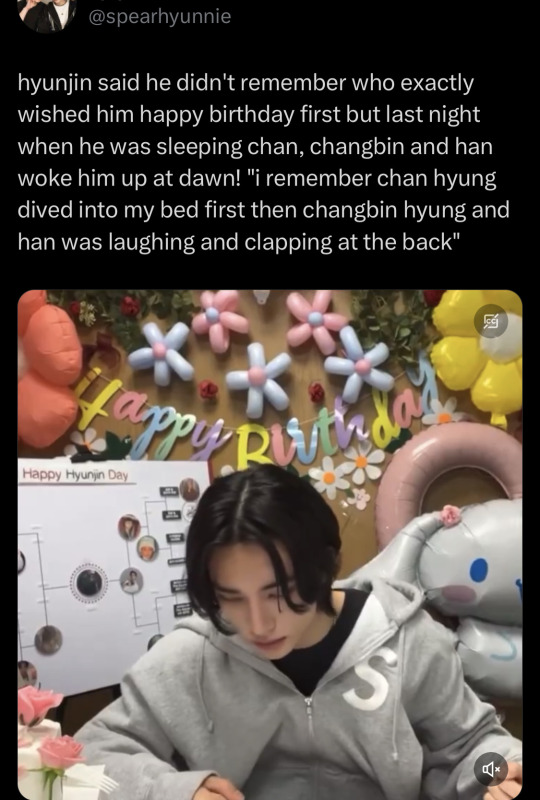
#3retcha 😞❤️… the imagine of this scenario is making me laugh#they just puppy piled his bed while he was sleeping#jisung just enjoying the show..
51 notes
·
View notes
Text
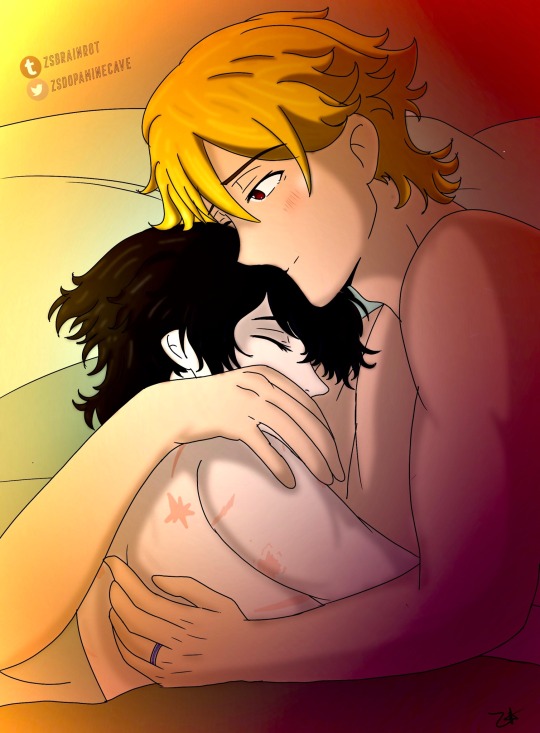
Something about drawing Kazurei being able to peacefully rest together just soothes my soul.
#kazurei#buddy daddies#reikazu#my art#buddy daddies fanart#kazurei fanart#rei suwa#kurusu kazuki#suwa rei#kazuki kusuru#I’ve been having kind of a rough time lately#I don’t really want to go into details but I’ve just been feeling kind of burnt out and numb#and just kind of bad about myself overall#and some people I used to feel emotionally safe around I kind of…don’t anymore#so it’s just been a sucky time#but I’m hanging in there ❤️#and I know it sounds silly but drawing Kazurei sleeping peacefully really does make me feel better#drawing them in general does but especially when they’re cozy and snuggly#I think because I just like imagining them feeling so safe#like something about that makes me feel better#I know it’s weird but hey a coping mechanism is a coping mechanism#so I may be posting a lot more eepy kazurei for a bit#and/or fluffy kazurei#I actually might do flufftober this year#because I need some fluff in my life#anyway sorry for venting in the tags
68 notes
·
View notes
Text
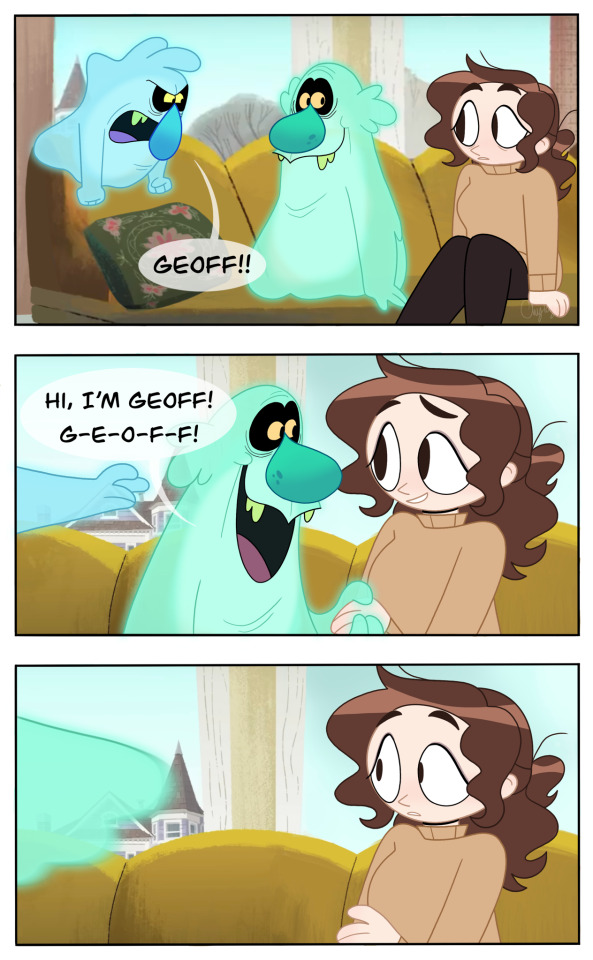
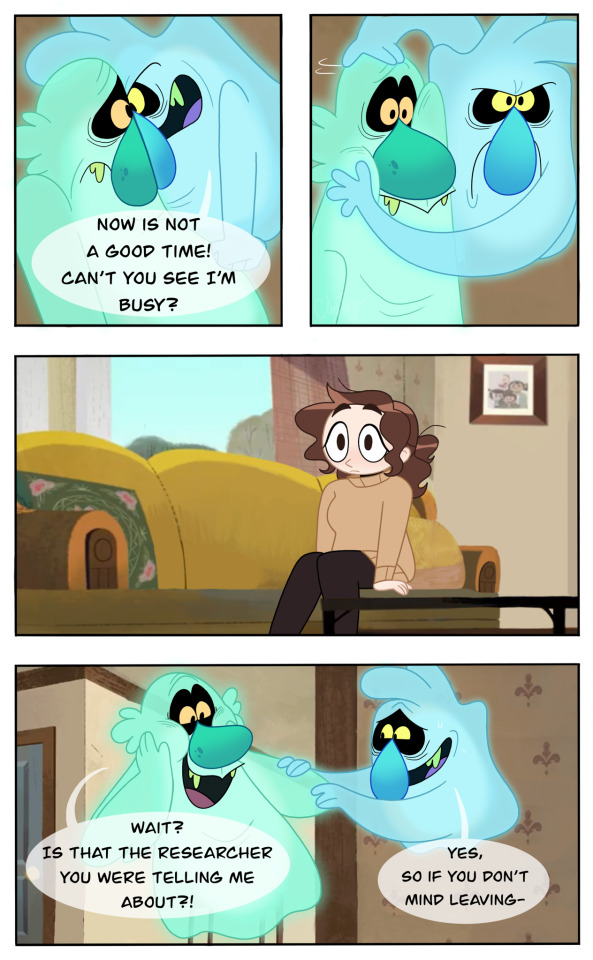
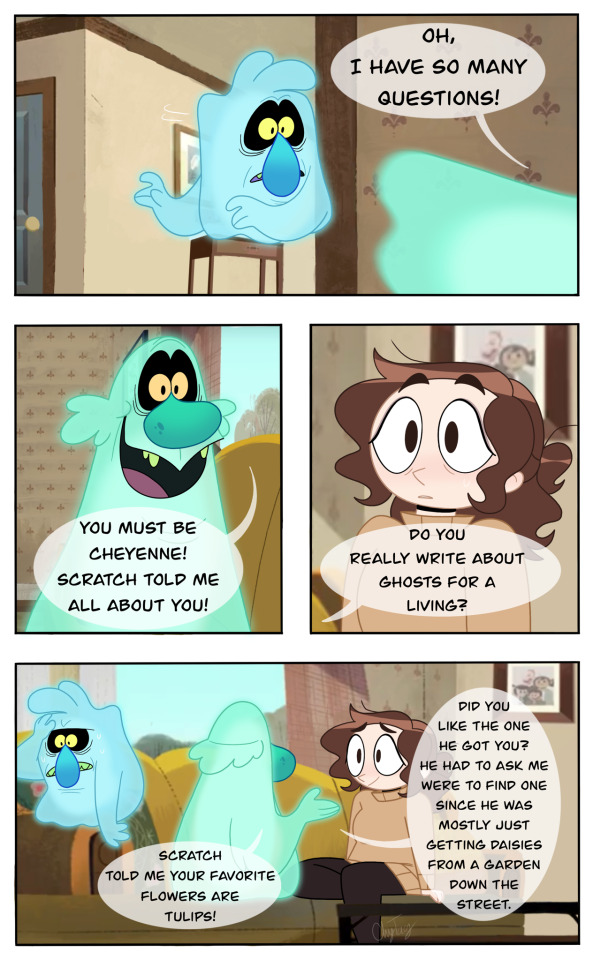
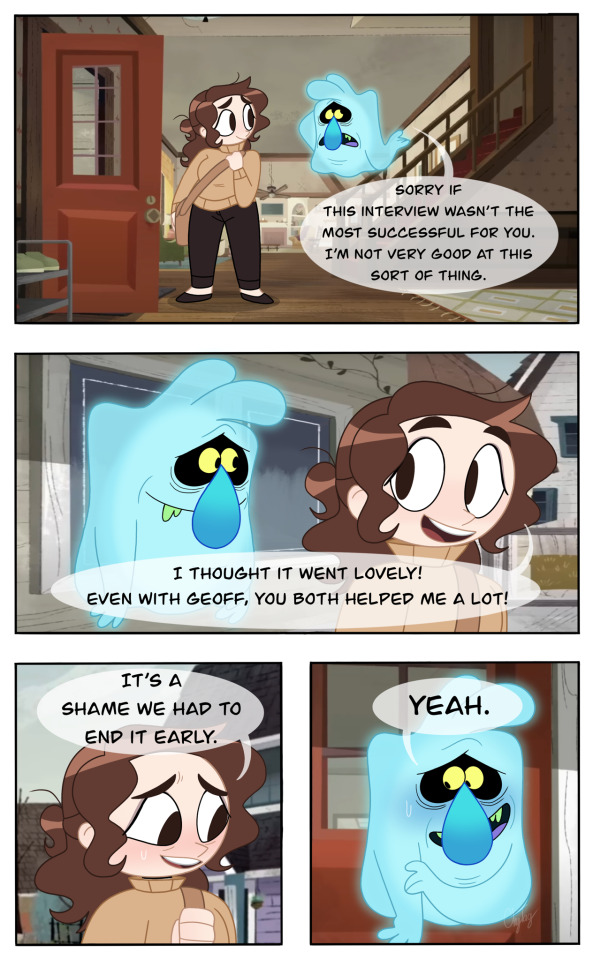
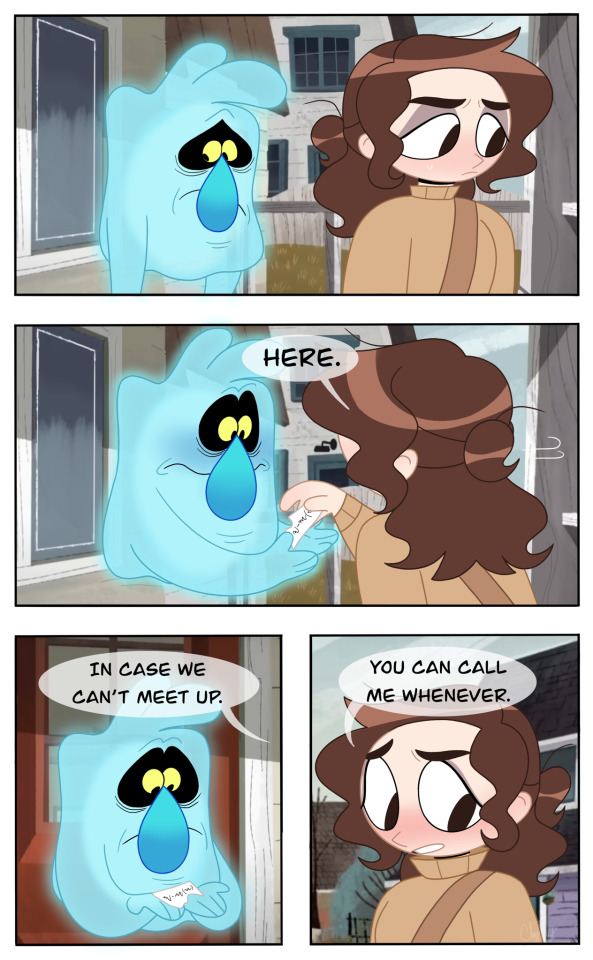

First | Previous | Next
#it’s two the morning and I can’t sleep so I’m just gonna post this now#i might take a break from the comic for a bit since I feel like I been posting too much about it and don’t want to annoy folks#but I’ll probably sketch out more pages and wait though#❤️ scratchyenne ❤️#self insert#self ship#🎨 chy creations 🎨#comic
218 notes
·
View notes
Text
I have a weak and sensitive heart
#i am the embodiment of emotion#ough#sometimes i wish i had a tougher heart#i feel grief so hard it makes me sick#and there is nothing to grieve? i just#get sad! im probably about to start my period or something AJDJWJMFKAJFJJEJSJ#this is how it normally goes AUGRJRFHJ#ren won't shut up#i should see a therapist again but honestly#im good 😎 ive been fine and dealing alright#its late!! i need to sleep! but i drank coffee ❤️ at 7pm ❤️#explodes
29 notes
·
View notes
Note
How many times did robespierre get an assassination attempts?
Because I remember his sister Charlotte robespierre says in her memoir maybe? That he had multiple assassination attempts not only Cécile-Aimée Renault who tried her luck.
And who is Cécile Renault and what is her story?
Charlotte speaks of attempts on her brother’s life in chapter four of her memoirs:
Since Maximilien Robespierre perished, a victim of counterrevolutionaries, his enemies’ rage has emerged in calumnies, lies, and furious diatribes against him; but before his death, independent of those means which have always suited them, they had another which was no less worthy of them: the dagger. A great number of assassination attempts were made on him. History has spoken of Cécile Renault and of Ladmiral, but it has said nothing of the many other assassins who came to my unhappy brother’s house in the intention of cutting his throat. We were one day gathered at M. Duplay’s house, when a man came and asked to speak to Maximilien Robespierre. My brother went to him and prayed him to say what he wished. That man replied that he could only speak to him in private; he was then shown into a neighboring room where my brother followed him. Some moments later we heard a violent movement. Right away we suspected the unknown man; we entered the room where he was with Maximilien, and we saw that he had seized my brother around the neck, that he had pushed him against the wall, and that he was strangling him!... the assassin was built like Hercules, and had an easy advantage over Maximilien, who was weak bodily and of a delicate complexion. We cried out piercingly; the assassin then let go his victim and took flight; entirely occupied as we were with succoring my brother, we did not think of cutting off his escape. Another time, two men came likewise to M. Duplay’s house to speak to my brother, who had gone out; we told them that he was absent. They insisted on seeing him. There was something suspicious in their countenances, in their miens, and even in their words; everything about them announced their malevolent designs; they were questioned on the object of their visit, and they cut themselves off, which succeeded in confirming our idea that those two men were nothing but criminals, who wanted to assassinate Maximilien. They said that they absolutely needed to speak to him, and that they would return. They did return, in effect, the next day at dinnertime when we were at the table; they did not enter together; perhaps they had made M. Duplay’s house a meeting-place to execute their crime. The first to arrive seemed embarrassed; he asked to speak to Robespierre in private; we replied that their vile plans had been discovered. At these words, he became troubled, mumbled a few words, and retired in all haste. Only a few minutes passed before his companion of the previous evening arrived. He was not given the same to speak; he was told that his accomplice had preceded him by an instant, that there was nothing more for him to do than to join him, and that their attempt had failed. No more was needed to destroy him; one might have called him a man struck by lightning; he fled as if being pursued. These two events, and many others as well, gave Robespierre the certainty that a gang of assassins had been organized to make attempts on his life.
Lucile Desmoulins also mentions an assassination attempt in a diary entry written December 12 1793, when recounting the events surrounding the Insurrection of August 10th four months earlier — ”On August 8, I returned from the countryside. Already the spirits were strongly aroused, someone had wanted to assassinate Robespierre.” While it’s tempting to assume this is one of the attempts Charlotte is describing above, this sounds unlikely to be true considering she hadn’t arrived in Paris by August 8 1792, yet claims to have been an eyewitness. I think it’s also a bit strange how, aside from the testimonies of the two women, we appear to have no other source for/mention of these three assassination attempts. Especially when we know the Cécile Renault one stirred up so many emotions…
As for her story, as told by Histoire du tribunal révolutionnaire de Paris (1880) by Henri Wallon, she lived on rue de la Lanterne (today Rue de la Cité) in Paris with her father and brothers. Acquaintances would later describe her as ”young, lively and nice, [someone who took] pleasure in conversation and loved finery,” and that her reserved father had a constant concern for his daughter. On May 23 1794, at nine o’clock in the evening, Renault presented herself at the Duplay house on Rue de la Saint-Honoré, roughly two kilometers away from her home, and asked to see Robespierre, claiming to have been out looking for him for six hours. When Éléonore Duplay, who had received Renault at the door, told her Robespierre wasn’t home, Renault got surprised and responded ”that he is a public official and therefore should respond to all those who came to his house.” This got her arrested (it is unclear to me whether Éléonore was the one who called for it or not) and sent to the Committee of General Security. On her way there, the three men escorting her reported that ”[Renault] told us that during the l’ancien régime, when one presented oneself at the king’s, one could enter straight away. We asked her whether she would rather have a king, she responded that she would shed all her blood in order to have one and that these were her opinions and that we were tyrants.”
Once arrived at the CGS, Renault was interrogated:
What is your name, age, profession and recidence?
My name is Aimée-Cécile Renault, I’m twenty years old, I live with my father, paper merchant, on rue de la Lanterne, close to rue des Marmousets, in the Cité section.
Where were you arrested and by whom?
I was arrested at Robespierre’s house by men I didn’t know.
What was your motive for going home to representative of the people Robespierre?
To talk to him.
What did you plan to talk to him about.
That depended on whether I found him or not.
Had anyone ordered you to go talk to him?
No.
Did you have anything to present him with?
That’s none of your business.
Do you know citizen Robespierre?
No, that’s why I asked to get to know him.
What was it that determined you to get to know him?
To see if he was OK with me (s’il me convenait).
I ask you to clearly explain what you mean by these words: ”to see if he was OK with me.”
I have nothing to respond. Don’t interrogate me more.
When you presented yourself at citizen Robespierre’s house, did you not express anger over the fact he wasn’t there?
Yes.
Do you know of rue de l’Estrapade?
No, I don’t know of it and I’ve never been there.
Do you know someone named Catherine Théos [sic]?
No.
Do you know an individual by the name of Dom Gerle?
No.
Have you ever heard Dom Gerle or Catherine Théos [sic] speak?
I have never heard anyone speak.
Did you tell the citizens who came to arrest you at citizen Robespierre’s house that if needed, you would spill all your blood in order to have a king?
Yes, I said that.
Do you stand by it?
Yes.
What were the motives which determined and still determine you to desire a tyrant?
I desire a king, because I would prefer that over fifty thousand tyrats, and I only went to Robespierre’s house to see what a tyrant looks like.
When the CPG searched Renault, two small knives were found on her. It was also discovered that, before going to visit Robespierre, she had left a package to one citizen Payen. The package was opened before Renault, and was shown to contain a full set of women's clothing. The interrogation then continued as follows:
What were your intention in providing yourself with these various items?
Fully expecting to go to the place where I would surely be taken, I would be happy to have linen for my use.
What place are you talking about?
About prison, to from there be sent to the guillotine.
What usage were you planning to make of the two knives that were found on you?
Nothing, I wasn’t planning to harm anybody.
Signed: Voulland, Dubarran, Amar, David, Moïse Bayle, Vadier, Élie Lacoste, Lavicomterie, Jagot, Louis du Bas-Rhin. As for her, she refused to sign.
After this interrogation, Renault was sent from the Committee of General Security to the Conciergerie prison. The following day, May 24, she was interrogated by the president of the Revolutionary Tribunal, René-François Dumas:
What is your name, age, profession and recidence?
My name is Aimée-Cécile Renault, I’m twenty years old, I live with my father, paper merchant, on rue de la Lanterne, close to rue des Marmousets, section de la Cité. I have three brothers, one of which, a 32 year old, lives in the same house, and the other two have left, one with the battalions sent to the department of Eure, the other with the first requisition.
Do you have any particular liasions or associations?
No.
Who are the people who visit your father’s house with the most frequency?
Nobody.
What are your opinions on the Republic and the government?
I want a king, because I’d prefer the power to be in the hands of a single person rather than of forty or fifty thousand tyrants.
How can you suppose that the power of the people, exercised through itself, its representatives or its mandataires to be tyrannical?
I don’t want to share my opinions.
Were your opinions inspired by anyone?
No, and I have no accountability.
Have your manifested your opinions in front of anyone?
No.
Have you in the revolution experienced any loss or been forced into any sacrifice that has been able to serve as a pretext for your opinions?
No, I want a king, I don’t have any other motives.
Do you have the hopes of bringing back a king?
Yes, and it doesn’t matter to me which one.
How do you imagiene the royalty could be reestablished?
Through the success of the armed coalition powers.
Do you have any reports or intelligence that put you in a position to base your hopes on the allied powers on something?
No.
Did you intend to contribute to the re-establishment of royalty?
Yes.
How did you intend to contribute?
I would have contributed with financial assistance and by all means that would have been in my power; I would also have contributed, depending on the circumstances, to destroying the government and those who exercise its power.
Have you made any attempt to carry out your plan?
No.
Have you written any anonymous letter against the government, or know anyone who has done so?
No.
Have you presented yourself at the house of any representative of the people?
I presented myself yesterday at Robespierre’s house, around nine o’clock in the evening.
What was your plan in going to Robespierre’s house.
To talk to him in person.
What did you want to talk to Robespierre about?
I don’t want to give any response or explanation regarding this question.
Do you realize that your answers lead one to believe you had the intention of committing a crime, and that you must explain your intentions?
She does not want to explain further, and adds that she intended to ask him for instructions on the situation and the strengthening of the Republic.
Do you realize that your declarations and obstinacy to not want to explain yourself cannot be reconciled with such a plan, which is why I’m again asking you to explain yourself?
She persists in not wanting to answer.
Did anyone propose to you the plan of going home to Robespierre and did you tell anyone about it?
No.
Did you go to Robespierre’s house several times during day?
No.
When you went to Robespierre, did you have with you knives, and of which sort?
I had in my pocket two folding knives, one in tortoiseshell and the other in ivory, both trimmed in silver: the one made of ivory was given to me by my brother in 89, having found it at Prés-Saint-Gervais. The other was given to me by my grandmother three or four years ago. It was loaded with rust; I cleaned it and tried to remove the rust by scraping the blade with another knife, eight or nine days ago. I rarely use it.
Do you regularly carry two knives?
I carry the tortoiseshell one regularly, the ivory one showed up in my pocket, I didn’t know it was there.
When you went home to Robespierre, did you have the intention of using these knives to kill him?
No; that, moreover, we can judge as we please.
When you yesterday left your father’s house, did you tell anyone?
No.
When you left your house, did you carry with you a package containing clothes, and for what purpose had you brought this package?
I had taken this package containing clothes and linen, because I anticipated that by going to Robespierre I would get arrested.
End of the interrogation.
Renault’s house was searched the night between the 23 and the 24. Suspect things found included two paintings “bearing the effigy of the tyrant and his wife” hidden in a cupboard, ”several papers bearing the signs of feudalism” and two national guard rifles belonging to the father and son. Under the bed in Renault’s room was found a banner on which was crown surrounded by fleur-de-lis printed in large size. In her father’s room was also discovered the following letter to his son:
Paris, January 3, Year II of the Republic.
I’ve seen the letter from your good mother, through which you show that the citizens of the province where you find yourself desire that the former king not be condemned to death. As of now, one can’t tell you anything, because nothing is over yet, but I think that, for the sake of the good and calm of the Republic, it would be desired if he was not executed.
Renault.
To M. Renault, corporal at the depot of the Théâtre-Français battalion, garrisoned in Berlemont.
The father was interrogated on the spot and revealed he had three brothers, two sisters, three sons and one daughter ”who left his house on 4 prairial around six in the evening and who he didn’t know the location of.” Soon, both he, his sister and his youngest son were arrested and seals placed on their belongings. Arrest warrants were also issued against the two oldest sons of the family, but with both away in the armies they escaped the fate of their relatives.
The Renaults’ neighbours were interrogated in order to find out more about them. One femme Papin, who made sure to underline she was not close to Cècile, had the following to say regarding her disappearance:
Citizen Renault, instructed of his daughter’s absence, appeared desolute, and went to his place to check if his daughter hadn’t taken anything with her. He came back saying that the trouble which agitated him robbed him of the ability to see if she had taken anything. Renault then closed his boutique and went to his place. [Femme Papin] went home as well, after having checked, by going home to citoyenne Gentilhomme, citoyenne Bouchot and others, that [Cécile] was not in the neigbourhood. She went to bed, and sometime after having fallen asleep, she was woken up by the son Renault who asked her to look after their cat. She accepted this without thinking about any consequences, without suspecting that in this moment, Renault was being put under arrest. The next day, femme Papin’s oldest daughter learned from citoyenne Besençon, baker, of the arrest of father and son Renault, and it was also said that fille Renault, having learned of the arrest of her brother and father, had fled the house to save herself from the same fate. Six o’clock in the morning, she found herself at the house of citoyenne Julles, talking with her about this arrest, when citoyenne Prévôt entered and told them that fille Renault had been arrested as well, and this while having wanted to kill Robespierre.
Femme Papin’s fifteen year old daughter also came forward, explaining that, on May 23:
Leaving her work and passing by Renault’s boutique, fille Renault knocked on the window, invited her in, and gave her the task of handing over 16 sols to citoyenne Julles. Then she chatted with her for about a quarter of an hour after which she went up to her place. Then she came back down and went out, saying she would not come back. Renault’s brother, not seeing his sister return, was worried to the point that he fell ill.
A girl who had come over to the Renault house to buy a pen declared that Cécile had told her that she had just bought a piece of muslin worth 25 livres from a dressmaker by the name of Sonnet, something which the latter’s wife confirmed to be true. The Renault’s maid declared that she had a bundle of Indian fabrics to redo a taffeta dress for Cécile, and Barbe-Françoise-Antonine Cruel, femme Martin, a different seamstress, reported that Renault had ordered a muslin dress made for her in secret, urging her to get it done as quick as possible since she had to attend the wedding of one of her cousins and because she could get guillotined before it. To that, femme Martin had responded that ”when one does no harm, one should fear nothing.” The revelation Renault possessed several expensive garments, along with information she had had contacts with a young man by the name of Admirat, believed to possibly be related to the Henri Admirat who had made an attempt on Collot d’Herbois’ life a mere day before Renault’s visit to Robespierre, were the main topics for the third interrogation with Renault, held on May 25:
What does your father give you in order to provide for your maintenance?
My dad provides for me, but he only gives me 15 sols per week for personal expenses.
Is it your father or you yourself who buys your clothes? Does he give you a lot and does it vary between different seasons?
He gives me that which satisfies me, and he was the one who bought them.
Do you consider that, holding the trust of your father and being the one who keeps the house running, it seems surprising that it was your father who bought your clothes; and that in general, these kinds of purchases are a thing of the past for women?
She persists in her former response.
Did you, a little while ago, buy different outfits, and do you in this moment have different clothes at the seamstresses?
I bought six ells of muslin, 25 livres per ell, from Sonnet, a haberdasher, living opposite my dad, and I owe him the price. I gave an Italian taffeta dress to citoyenne Dematin, seamstress, living on l’Île de la Fraternité, I believe in a street near the barracks, opposite or nearby an apothecary, and whose name I do not know, to make a sheath out of it for me. I also gave her a muslin sheath, and the six ells of muslin already mentioned, with the exception of the portion which was taken from it to make the garnish, by citoyenne Gentilhomme, linen worker, living with my father. I gave a pierrot de taffetas to lengthen my petticoat to my friend citoyenne Petit, living in Marché-Neuf, with a locksmith, on the fourth floor. My dad doesn’t want me to see her often, observing that she since about a year has been married to a chariot adjutant whose name I don’t know.
Do you understand that one cannot be convinced that, receiving only fifteen sols per week from your father, and this according to your own admission, he would provide you with such a big and beautiful wardrobe?
She persists in declaring that it was her father who bought her the various effects, except for the muslin, and adds that she owes citoyenne Petit, from Marché-Neuf, around forty livres.
Can you explain how, having only 15 sols per week to provide for your particular expenses, you intended to pay the six ells of muslin which you just declared to have purchased on credit, without your father's knowledge. Isn’t it obvious that you could not pay the price of this muslin without some other special resources?
The confidence the merchant, or better yet his wife, had in me, determined them to make this supply on credit and have me pay it off when I could, in ten or twenty years. I intended to ask my dad for fifty livres when I found the opportunity and give it to them.
Do you remember that in the interrogation held yesterday you declared that you would provide money to those who would help you in your counter-revolutionary projects to re-establish the monarchy in France?
I remember saying that.
How can you reconcile this offer of relief with the shortage in which you declare yourself to be?
I acknowledge the shortage in which I find myself, but I would have sold my belongings to provide for the expenses of the armies allied against the Republic.
How long has it been since you went to confession?
I have no accountability for this. Moreover, churches and priests were suppressed a long time ago.
Who was your confessor when the priests exercised their functions?
I have never been to confession.
Have you been to the house of any priest after they stopped holding office, and has any priest frequented your father’s house?
No.
Have you, since the supression, been at the house of the priest of la Magdeleine?
No, because I knew he was a firm patriot, and that he didn’t share my opinions.
Have you sometimes gone to the curé of Saint-Landry, or had any relations with him?
No, I don’t know him, I only know his name.
Do you know citizen Admirat, aged 16 or 17, who sometimes came to see the son of widow Joyanvad, marchande épicière, rue de la Lanterne, at the corner of rue des Marmouzets?
I’ve seen him five to six times only, but I have never spoken to him. I’ve seen him at my father’s house, which is next to that of citoyenne Joyanval.
Have you been to café Payen?
I have not gone into the café, but I left my package to citizen Payen and asked him where Robespierre lived. He sent me to the guardhouse of the firefighters, who gave me the adress.
Were you not surprised one wouldn’t give you Robespierre’s adress, and did you tell them you were going to see a man who today was a lot and tomorrow would be no more?
I might have, I don’t remember. But speaking to the fireman, I told him: ”Robespierre is somewhere.” The fireman having answered that he was president of the Committee of Public Safety, I replied ”So a king then?”
Have you considered that the various admissions made by you in the previous interrogations, together with those recorded in this one, announce that your visit to Robespierre had any other aim than that of discussing only government affairs?
She persists in her previous responses in this regard.
Are you on the point of marrying?
No.
When did you become a royalist?
I have always been one.
I ask you again what it was that determined you to go home to Robespierre was and what your plan was.
She persists in her previous responses, and adds that she would not say more about this; that moreover, it is up to us to guess the rest. (6 prairial, 6 o’clock in the morning)
Soon, Renault did however start having a guilty conscience over having denied her faith, and seven o’clock in the evening the very same day she gave the names of the two late priests that had been in charge of her communion to a judge of the tribunal. When asked if she since then had performed any religious act and who the persons who had made her do that were, Renault simply responded that that was a secret and she had nothing more to say.
During the trial of public prosecutor Fouquier-Tinville one year later, the registrar Wolff claimed that Renault was stripped of her own clothes, covered in rags and threatened during her interrogation:
To force her to make the confession that they wanted to extract from her, she was applied to a type of questioning so ridiculous that it should have made the justice system blush. As the taste of this young girl, who was quite pretty, was to be well dressed, she was stripped of her clothes and covered with dirty and disgusting rags, and in this state she was taken up to the council chamber where she underwent a new interrogation and where the same demands and the same threats were made against her; to which she replied the same way she had already done, adding jeers and mockery against the judges who had the pettiness to use such a ridiculous type of question against her. She was threatened with taking her father and her entire family with her if she did not confess to this alleged assassination.
As Renault was being interrogated, the city section where her family lived also carried out an investigation against them, and through it, even more compromising details came floating up to the surface. It was reported that the family, after the overthrow of the monarchy, had had the words ”the nation, the law and the king” on a cartridge box (giberne), words which they at first refused to delete, though they would eventually do so with the ”king” part. Renault’s father, speaking of the murder of Lepeletier in January 1793, was said to have had stated ”Well! One also wants the death of the king, that will cost them dearly,” while his son had openly lamanted the king’s and queen’s imprisonment in the Temple while serving as guard there. His statement had been reported to the rest of the guard unit, but he had ignored it, simply saying that he thought what he thought.
Renault’s three arrested family members — father, brother and aunt — were all interrogated on May 28:
Antoine Renault, 62 years old.
Do you know who the people are that your children frequent and have relations with?
I only know of indifferent relations to neighbors or relatives. A sister of mine, a former nun, called sister gray, came to my house and conferred with my daughter, without me remarking anything in particular between them. Said sister is very attached to religion.
Learning that we were writing down this part of his response, he wanted to cut it out.
Does your daughter have any fanatical prejudices and any passions typical for her age?
I haven’t noticed in my daughter any religious affections, she appears rather indifferent when it comes to this subject. There exists no clue she has any passions, on the contrary, she is watched over and never leaves the house alone, except for when she rarely goes to the market. When she goes out, I always accompany her. I add here that my daughter is very attached to her aunt.
How do you provide maintenance for your daughter?
I myself buy what is necessary for her.
Where were you the fourth (23rd) this month?
I stopped working (j’ai descendu la garde) at two a’clock, I had dinner at my place with my son and daughter. Five o’clock, being on the point of going to bed, my son and daughter engaged me to go out to relax. I did so, carrying with me 25 livres that he owed to a laundress. I returned home at eight o'clock in the evening, where I found my son and the fille Pepin (Papin), both in anguish, and the former troubled because my daughter, who had been gone since six o’clock, had not returned. They told me that before leaving, she had told them to wait for her, that she would return, without saying where she was going. I had as my plan to go see if my daughter was at her aunt’s house, so I left my house, but fearing to meet her on the way, I went inside and went to bed, as did my son, and we got arrested in the night. I don’t know what has become of my daughter since this moment.
He is asked about the small pieces of furniture (petits meubles) that his daughter owned.
I know of scissors, a bad knife with an ivory handle, which was given to her by her brother; another knife with a scale handle, from my dead sister. She does not usually carry them and often has neither.
Do you know what your daughter’s opinion is on the revolution?
She is a good patriot, she loves the republic very much.
Does your daughter miss the tyrant and has she shown that she desires to see a king reestablished in France?
No.
Have you yourself, in your house, sought to inspire your children with dispositions contrary to the Republic and the current government?
No.
One shows him the letter dated January 3 1793 written by him to his son, the two portraits of the king and the queen found, the two small knives, scissors and a case that he recognizes as belonging to his daughter.
He responds to questions asked regarding the denounciations of which he has been the object. He has never heard his daughter talk about Robespierre or her plan.
Does your daughter know how to read and write?
No, moreover, my daughter has so little inclination towards fanaticism that she has never taken what is called first communion, and has never approached a priest to make what is called confession.
The same day, Antoine-Jacques Renault, 31 years old.
Did you know that the paintings were being kept in a cupboard?
Yes.
Have you served as guard at the Temple?
Yes, two times.
He denies the conversation attributed to him by a denouncer. He is asked again if priests came to his house and if they declaimed against the Republic?
No.
Do you know Admirat?
No.
When your sister went out, why were you so worried?
As my sister usually doesn’t go out, I was worried over not seeing her again.
Do you observe that the situation in which you find yourself does not indicate simple concern, but deep affection to dreadful events?
He persists in his answer.
Do you know that your sister planned to assassinate members of the Committee of Public Safety, and were you involved in the plot?
No.
The same day Edme-Jeanne Renault, 60 years, former nun, rue de Babylone, 698.
Do you often go home to your brother, Antoine Renault?
I go there at least once every décade.
Which priests do you know?
I haven’t seen one in two years.
Have you had any particular conversations with fille Renault?
I view her as my niece, without particularities.
Do you know someone named Admirat, and do you know that he was known to your niece?
No.
Did you know about your niece’s plan? Were you an accomplice? Do you know who inspired it? Did conversations hostile to the republic take place in your house?
No.
The same day her three relatives were heard, Renault was her too picked in by Dumas for a fourth interrogation:
Eight days before your arrest, did you not strongly press a seamstress to carry out work that you had given her?
Yes, and these works were garments.
Did you say to this worker that you were in a hurry for these clothes, and that you didn't know what could happen, and that you could get guillotined in eight days?
I may have said that.
How is it that eight days before your arrest, you could foresee that you could get guillotined?
I have no idea.
Did your family know that you were preparing for first communions?
Never.
How did you know that Blondeau, priest of Saint-Denis-du-Pas, died last Pentecost?
It is only too true that the good priest is dead, I do not want to say from whom I learned of his death.
Do you want to declare that it was he who suggest to you the plan that you attempted to carry out?
Nobody did.
Do you often see your aunt, the former nun?
About every fortnight, and not as often as I would have desired.
She doesn’t want to make more declarations.
She declares that she doesn’t know how to sign.
Signed only F. Girard.
Renault was not perceived as some ”lone madwoman” by the authorities. Instead, they viewed her alleged assassination attempt as part of a bigger conspiracy, connected first and foremost to Henri Admirat’s attempt on Collot d’Herbois life one day earlier. Admirat and Renault were in their turn believed to be accomplices of Baron de Batz, a royalist and former member of the National Assembly, who had since turned against the revolution and was currently in hiding. According to letter written by the Committee of General Security to the public prosecutor exactly a month before Renault’s visit to Robespierre, de Batz had tried to rescue the royal family from the Temple by pretending to serve a guard there, tried to rally a mob to save the king on the day of his execution, held an Austrian committee directed by Marie-Antoinette, tried to bribe the authorities, and had contacts with both William Pitt, the Vendée, Toulon, Lyon, Marseille and the émigrés, all with the goal ”to assassinate the national representation, the object of his constant rage.” The letter ended by declaring de Batz was officially outlawed and any means were allowed when it came to capturing him.
In the weeks following Renault’s arrest, she would be joined by more people would said to belong to this alleged conspiracy, among them de Batz’ mistress, lodger and secretary, a domestic and seamstress, a former marquis and his son, a banker, a confident of Fabre d’Églantine and Hérault de Séchelles, parisian prisoners de Batz was believed to have influenced, and even several men currently employed in revolutionary administrations believed to benefit the enemy. On June 14, the Convention unanimously decided to immediately send the total of 40 accused before the Revolutionary Tribunal, following a report on the conspiracy read by the Committee of General Security’s Élie Lacoste (the total number would however have been bumped up to 54 once the trial began). The main objective of the conspiracy had according to Lacoste been ”the abduction of Capet's widow, the dissolution of the National Convention, and finally counter-revolution.”
The trial started on June 17 and lasted only for a few hours (I’ve unfortunately not discovered the minutes for it). All of the 54 accused, with the exception of Admirat, denied having been involved in any assassination plan. That was however not enough to stop the tribunal to sentence every single one of them to death. They were executed at four o’clock the very same day, all dressed in red shirts, which the penal code of 1791 had proclaimed all condemned murderers were to wear.
Though Robespierre never so much as saw Renault or Henri Admirat, the assassination attempts are still often seen as a contributing factor to a decline of his mental health in the last months of his life. Already on May 25, he was the author of the following CPS decree, rather panicky in tone, asking Saint-Just, who was currently away with the armies, to return to Paris:
Dear collegue,
Liberty is exposed to new dangers; the factions arise with a character more alarming than ever. The lines to get butter are more numerous and more turbulent than ever when they have the least pretexts, an insurrection in the prisons which was to break out yesterday and the intrigues which manifested themselves in the time of Hébert are combined with assassination attemps on several occasions against members of the Committee of Public Safety; the remnants of the factions, or rather the factions still alive, are redoubled in audacity and perfidy. There is fear of an aristocratic uprising, fatal to liberty. The greatest peril that threatens it is in Paris. The Committee needs to bring together the lights and energy of all its members. Calculate whether the army of the North, which you have powerfully contributed to putting on the path to victory, can do without your presence for a few days. We will replace you, until you return, with a patriotic representative.
The members composing the Committee of Public Safety.
Robespierre, Prieur, Carnot, Billaud-Varennes, Barère.
The next day, May 26, after Barère in the name of the CPS had read a report to the Convention regarding the assassination attemps (calling Renault ”a royalist as fanatical as the most inveterate of couriers”) and using them as a weapon against the English, Robespierre mounted the roatroom and held a fiery speech — ”calumnies, treasons, fires, poisonings, atheism, corruption, famine, assassinations, have all lavished their crimes; there still remains assassination, and then assassination, and then again assassination.” He appeared at the Jacobins the following day but after that he didn’t speak in public again until June 8, the day of the Festival of the Supreme Being. The Convention deputy Joachim Vilate claimed in the pamphlet Causes secrètes de la révolution du 9 au 10 thermidor (1794) that Robespierre during the last months of his life ”spoke only of assassination, again assassination, always assassination. He was frightened his own shadow would assassinate him. One month before his overthrow I had only set foot in his house and was given worried and threatening looks.”
The assassination attemps are also commonly seen as a contributing factor to the creation of to the Law of 22 Prairial, passed by the Convention on June 10, which Renault and the other accused were also judged under.
#cécile renault#robespierre#frev#french revolution#long post#ask#”i wasn’t gonna harm him but i think he’s a tyrant and i want to see the government overthrown.”#girl what kind of strategy is THAT???#either go all in ”yes i was gonna stab him and i’m proud of it.”#or just go ”oh no i had no evil intentions whatsoever i just always carry knives on me. i ❤️ max!!!#also ”oh no my daughter/sister who never leaves the house alone has left it alone without telling me where and i’m super worried”#”well best just go to sleep and hope she shows up eventually”#like WHO reasons like that????
31 notes
·
View notes
Text

Look how snuggly he is. It's very cold here tonight. Seeing my dog comfortably sleeping is one of my favorite things.
#dogs❤️#blu❤️#he just did the going to sleep sigh!!!#i love that so much!!!#now i have to walk over him to get to the bathroom#ughhh
29 notes
·
View notes
Text
goodnight people in my phone <3
#I SAY GOODNIGHT BUT I CANT FUCKING SLEEP#THUS IS JUST ME LOGGING OFF#TBE INSPMINA OS SO BAD RN#ALDO IM GO LAZY TO FIX MG SPELLING#lou’s thoughts ❤️
21 notes
·
View notes